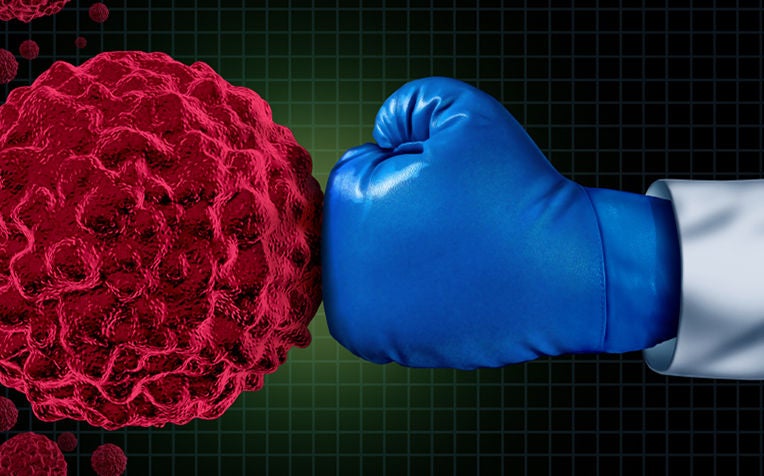
Immunotherapy allows patients to use their own immune system to fight cancer.
A patient with cancer can potentially be treated with one or more of the five pillars of cancer treatment – surgery, chemotherapy, radiation, hormone therapy and targeted therapy. Now, immunotherapy can be considered part of the arsenal for some cancers.
Cancer immunotherapy consists of treatments (now mostly within clinical trials) that boost the immune system, allowing the body’s own defences to combat cancer.
Encouraging results from some landmark clinical trials in the last three to five years have demonstrated some very dramatic clinical responses in certain cancers, said Dr Toh Han Chong, Senior Consultant, Division of Medical Oncology, and Deputy Director, National Cancer Centre Singapore (NCCS), a member of the SingHealth group. Dr Toh is Principal Investigator of a recent immunotherapy clinical trial in Singapore.
He said that immunotherapy has emerged as a real and promising new treatment because of a much better understanding of how the immune system works, following many years of intense research into cancer immunology. Medical science now knows more about how the immune system works, and this intricate knowledge is translatable into new, more effective drugs today. A prestigious journal, Science, voted cancer immunotherapy as their overall Breakthrough of the Year in 2013.
“Cancer cells are good at disguising themselves, but new knowledge has helped us figure out how they do this in greater detail, and how we can recognise some subtle differences between cancer cells and normal cells, so as to design sophisticated immunotherapy drugs that exploit this weakness in cancer’s Achilles heel. With the use of immunotherapy, the immune system can actually recognise and combat these cancer cells in a much more precise manner now while sparing normal cells,” Dr Toh said.
4 main forms of immunotherapy
There are different types of cancer immunotherapy. Some rely on harnessing the patient’s own blood as the main source of treatment development, while others use laboratory-made or commercially manufactured immune system proteins and antibodies. The main forms of immunotherapy include vaccines, antibodies, cytokines and T-cell therapy.
Vaccines
There are two main types of cancer vaccines – those which reduce the risk of cancer (prophylactic vaccines) and those which treat established cancer (therapeutic vaccines). Prophylactic vaccines are given to reduce the risk of people getting specific cancers. Among those now available are vaccines to prevent Hepatitis B (thus reducing the risk of liver cancer) and vaccines that induce immunity against human papillomavirus thus reducing cervical cancer risk.
Therapeutic vaccines are given to people who already have established cancer. These train the immune system to recognise and destroy cancer cells existing in some amount in the human patient. While there are many ongoing trials evaluating therapeutic cancer vaccines, only one has been FDA-approved so far – Sipuleucl-T, or Provenge – and this is for the treatment of advanced prostate cancer.
Read on for more types of immunotherapy.
Ref. Q15
Contributed by


















 Get it on Google Play
Get it on Google Play